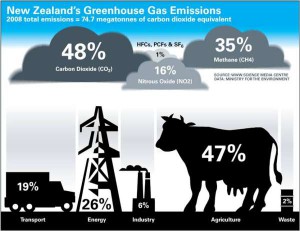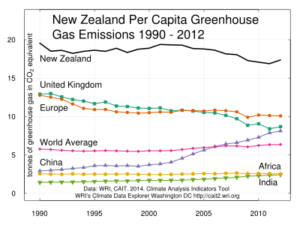There is a strong moral imperative to  act urgently on climate change – for our very survival – at all levels: personal, community, national and global.
act urgently on climate change – for our very survival – at all levels: personal, community, national and global.
There is no doubt that humans have an effect on the climate, although we do acknowledge that there is natural climate change as well. Human effect is exacerbating climate change and instability massively.
Climate change can kill with efficacy as huge storms hit with frightening intensity and after the winds go, leave a legacy of flooding and landslides.
Rising seas caused through ice melt will gradually erase whole nations, and droughts will kill many thousands.
Ocean acidification arises from carbon dioxide dissolving in salt water which leads to a reduction in ph which alters the sea mineral chemistry. Ocean acidification impacts will cascade throughout the marine food chain and affect the overall structure of marine ecosystems.
Human population is forecast to grow at approximately 1 billion people per 14 years for a few more decades. Those modelling the surge in human numbers estimate a plateau above 10 billion people during the second half of this century. We are currently 7.3 billion.
Competition for resources will intensify as the perfect storm of population growth collides with food insecurity, caused through altered weather patterns and extreme weather events.
The Awareness Party supports measures to both mitigate (reduce greenhouse gas emissions) and to adapt to the changing environment that results from climatic alteration.
Mitigation and adaption need to be viewed as complementary components of a the strategy to reduce the predicted and unknown changes resulting from our industrial economy, by reducing carbon emissions to zero and deal with the changes and implications already locked in. The continuing burning of carbon based fuels plus agricultural emissions will increase the level of greenhouse gases already saturating the atmosphere and oceans until we get serious about implementing the policies and actions we know we need to ensure a viable and livable future for all of Earth’s inhabitants.
There have been numerous attempts to reach a global agreement to curb industrial and agricultural greenhouse gas emissions since the problem was identified with the discovery of the nature and effect of greenhouse gases on retained energy in the atmosphere. The global negotiations toward a United Nations Framework Convention on Climate Change (UNFCCC) have traveled a tortuous road from the 1980s through Kyoto, Copenhagen and more recently the agreement reached in Paris December 2015 and now in force, and as of April 2017, has been ratified by 143 governments. It locks in a crucial commitment to keep global temperature warming to 1.5 degrees Celsius, and well below 2 degrees. This is a critical step, albeit long overdue, in the global initiative to mitigate climate change through a legally binding and enforceable treaty.
The Awareness Party is most concerned at the level of corporation influence on the UNFCCC outcomes, and notes the report; “Inside Job: Big Polluters’ lobbyists on the inside at the UNFCCC” by Corporate Accountability International; the report peels back the curtain on just six of the more than 270 Business/Industry NGOs non-governmental organizations (BINGOs) currently admitted to the climate talks: U.S. Chamber of Commerce, National Mining Association, Business Roundtable, FuelsEurope, Business Council of Australia, and International Chamber of Commerce.
See Inside Job: Big Polluters here , and the pdf here:
This is an extract from the report;
May 2017 represents an unprecedented opportunity for government delegates to the United Nations Framework Convention on Climate Change (UNFCCC) to meaningfully address climate change. At an upcoming meeting, delegates will take up the issue of conflicts of interest: whether organizations representing the interests of fossil fuel corporations should continue to have an outsized presence at the U.N. climate treaty negotiations. With the destructive effects of climate change growing more dire every day, much rides on the outcomes of this meeting. Will the UNFCCC be able to lead the way in moving the global community to implement urgently needed solutions to climate change? Or will the fossil fuel industry continue to delay, water down, and block such solutions—leading us all to the point of no return when it comes to climate change?
This report provides examples of trade and business organizations based in regions with the UNFCCC delegations that have most vehemently opposed attempts to address potential conflicts of interest. It highlights the irreconcilable conflicts of interest between the corporate interests these organizations represent and the objectives of the U.N. climate treaty and demonstrates that these organizations and their corporate funders cannot be trusted when our future is on the line. The report concludes with recommended actions for a variety of actors, including governments and civil society, to effectively protect the UNFCCC, national governments, and their policies from conflicts of interest.
Here is a link to the corporation influencers and the role they play in supporting or blocking climate change action.
Where is the influence of the transnational corporations (TNC) and their action to reduce carbon emissions?
The 2007 State of the Environment Report noted that in 2005 
New Zealand’s per capita emissions of the six greenhouse gases
listed in the Kyoto Protocol were 18.5 tonnes CO2equivalents per
head of population and were the 12th highest in the world.
See graph and this link here.
New Zealand’s net greenhouse gas emissions increased 54 percent between 1990 and 2014. Total emissions increased 23 percent.
We need to address this disgraceful performance right away.
The Awareness Party supports a carbon tax rather than an emissions trading scheme.
Back to Policies page
